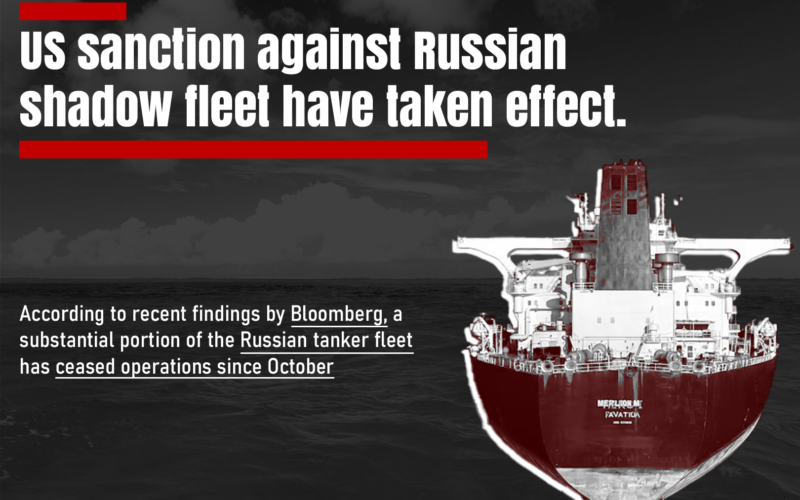According to recent findings by Bloomberg, a substantial portion of the tanker fleet engaged in the transportation of Russian oil, priced above the $60 per barrel threshold, has ceased operations since October. This development coincides with the imposition of US sanctions on these vessels, suggesting a discernible impact on Moscow.
However, precision in assessing the situation remains elusive, as the US Treasury Department applies sanctions to tankers in periodic batches. Out of the 50 tankers targeted since October 10, merely 18 have successfully loaded cargo. Notably, nine of these vessels function as shuttle tankers, facilitating the transfer of oil from extraction platforms or vessels. Furthermore, a single tanker, affiliated with Sovcomflot, continues to transport cargo loaded prior to the imposition of sanctions.

Seven tankers had been idle prior to the imposition of sanctions, with three more anticipated to commence loading operations imminently. Among the fleet of 24 sanctioned tankers, SUN Ship Management D Ltd., a subsidiary of the Sovcomflot conglomerate, commands ownership of 24 vessels, while an additional 18 are under the auspices of Hennesea Holdings Ltd., a company based in the United Arab Emirates. The latest vessel to fall under sanction is the NS Leader, operated by Sovcomflot, which was officially designated on February 8th. Following its inclusion on the sanctions list, the vessel promptly altered its course off the coast of Portugal, redirecting towards a Russian port situated along the Baltic Sea.

Over the past two months, fourteen tankers carrying Sokol crude oil to India have either been adrift or anchored in waters east of Singapore, according to the agency. Nearly half of them have reversed course without reaching their intended destination.
The tightening of sanctions has also led to Greek tankers withdrawing from the trade of Russian oil. Greece stands as a primary European carrier of oil.
In January, the number of tankers owned by the country for oil transportation more than halved compared to December of the previous year, dwindling to eight vessels. In contrast to May 2023, the number of Greek tankers transporting Russian oil has plummeted by fivefold.

Analysts attribute this situation to the widespread dissemination of notifications by the US Treasury Department to foreign shipowners in November of the previous year. Subsequently, tanker owners have been avoiding the transportation of Russian raw materials.








